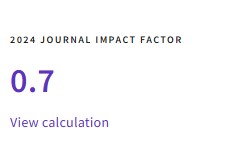Cooperative learning, body expression and teaching skills in physical activity
DOI:
https://doi.org/10.24310/riccafd.2020.v9i1.8310Keywords:
cooperative learning, professional skills, body expression, formation of the professorship of physical activity, higher educationAbstract
Starting from the concept of teaching competencies such as those that enable the student of initial teacher training to design, deliver and evaluate physical activity programs, whether or not in formal education contexts, we present an investigation in which the students of the first year of the Degree In CC of Physical Activity and Sports designed sessions in the subject of Body Expression, through a pedagogical model of Cooperative Learning. Each session was taught by a team, the whole group-class, each member being responsible for a learning situation, or part of it, which should conclude in the constant learning of specific expressive motor actions. The progress of teacher competence self-perception during the experience was analyzed. The results changed positive positive changes in 17 and negative changes in 2 of the 40 items studied.
Downloads
Metrics
References
Alonso MC, Gómez-Alonso MT, Pérez-Pueyo Á, Gutiérrez-García C. Errores en la intervención didáctica de profesores de EF en formación: perspectiva de sus compañeros en sesiones simuladas. Retos. Nuevas Tendencias en Educación Física, Deporte y Recreación. 2016; (29): 229-235.
Bembenutty H. Teaching. Effectiveness, Course Evaluation, and Academic Performance. The Role of Academic Delay of Gratification. Journal of Advanced Academics. 2009; 20: 326-355. Disponible en http://eric.ed.gov/?id=EJ849381
Cano, E. Cómo mejorar las competencias de los docentes: guía para la autoevaluación y desarrollo de las competencias del profesorado. Barcelona: Graó, 2005.
Echeverría B. Configuración actual de la profesionalidad. Letras de Deusto. 2001; 31: 35-55.
González J, Wagenaar R. (coords.). Tuning Educational Structures in Europe. Bilbao: Universidad de Deusto, 2003.
Salcines I, González-Fernández N, Ramírez-García A Martínez-Mínguez L. Validación de la escala de autopercepción de competencias transversales y profesionales de estudiantes de educación superior. Profesorado, Revista de Currículum y Formación del Profesorado. 2018; 22(3): 31-51. Disponible en https://recyt.fecyt.es/index.php/profesorado/article/view/69182/41673
Baños R, Ortiz-Camacho MM, Baena-Extremera A, Granero-Gallegos A, Machado-Parra JP, Rentería I, et al. Relación entre el clima de aprendizaje en Educación Física y la percepción de los estudiantes en las competencias del profesorado. En: Libro de actas del XV Congreso Internacional de Actividad Física y Deporte. Revista Iberoamericana de CC de la Actividad Física y el Deporte. 2019; 8(2): 117-224. Disponible en http://www.revistas.uma.es/index.php/riccafd/article/view/6696/6186
Metzler MW. Instructional models for physical education. EEUU: Holcomb Hathaway, Publishers, 2011.
Fernández-Río J, Méndez-Giménez A. El aprendizaje cooperativo: Modelo pedagógico para Educación Física. Retos. Nuevas Tendencias en Educación Física, Deporte y Recreación. 2016; (29): 201-206.
Velázquez Callado C, Fraile Aranda A López Pastor VM. Aprendizaje cooperativo en Educación Física. Movimento. 2014; 20(1): 239-259.
Jhonson DW, Jhonson RT (1999). El aprendizaje cooperativo en el aula. Buenos Aires: Paidós, 1999. Disponible en http://conexiones.dgire.unam.mx/wp-content/uploads/2017/09/El-aprendizaje-cooperativo-en-el-aula-Johnsons-and-Johnson.pdf
Mateu M, Coelho MA. La lógica interna y los dominios de acción motriz de las situaciones motrices de expresión (SME). Emancipação. 2011; 11(1): 129-142.
Romero-Martín MR. La Expresión Corporal en Educación Física. Zaragoza: Prensas Universitarias de Zaragoza, 2015.
Seners P. La leçon d´EPS. Paris: Vigot, 2001.
Molins-Nimo S, Onetti W, Castillo-Rodríguez A. Influencia del estilo de enseñanza en el aprendizaje de elementos técnicos deportivos. Revista Iberoamericana de Ciencias de la Actividad Física y el Deporte. 2019; 8(1): 54-61.
Scallon G. L’évaluation des apprentissages dans une approche par compétences. Saint-Laurent: Éditions du Renouveau Pédagogique, 2004.
Zabalza MÁ. Tendencias pedagógicas. 2012; 20 : 5-32. Disponible en https://revistas.uam.es/tendenciaspedagogicas/article/view/2012/2118
Downloads
Published
How to Cite
Issue
Section
License
All the contents published in Revista Iberoamericana de Ciencias de la Actividad Física y el Deporte are subject to the Creative Commons Reconocimento-NoComercia-Compartirigual 4.0 license, the full text of which can be found at <http://creativecommons.org/licenses/by-nc-sa/4.0>
They may be copied, used, disseminated, transmitted and publicly exposed, provided that:
The authorship and original source of your publication (Journal, editorial and URL of the work) are cited.
They are not used for commercial purposes.
The existence and specifications of this use license are mentioned.

Copyright is of two kinds: moral rights and patrimonial rights. Moral rights are perpetual, inalienable, inalienable, inalienable, inalienable and imprescriptible prerogatives.
In accordance with copyright legislation, Revista Eviterna recognizes and respects the moral rights of the authors, as well as the ownership of the economic right, which will be transferred to the University of Malaga for dissemination in open access.
The economic rights refer to the benefits obtained by the use or disclosure of the works. Revista Iberoamericana de Ciencias de la Actividad Física y el Deporte is published in open access and is exclusively authorized to carry out or authorize by any means the use, distribution, disclosure, reproduction, adaptation, translation or transformation of the work.
It is the responsibility of the authors to obtain the necessary permissions of the images that are subject to copyright.
















9.png)
